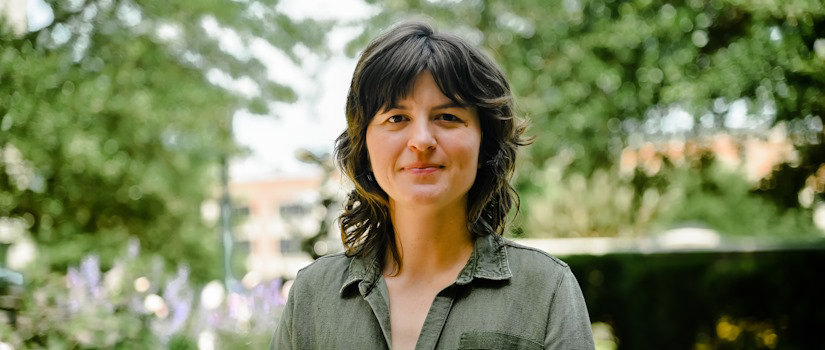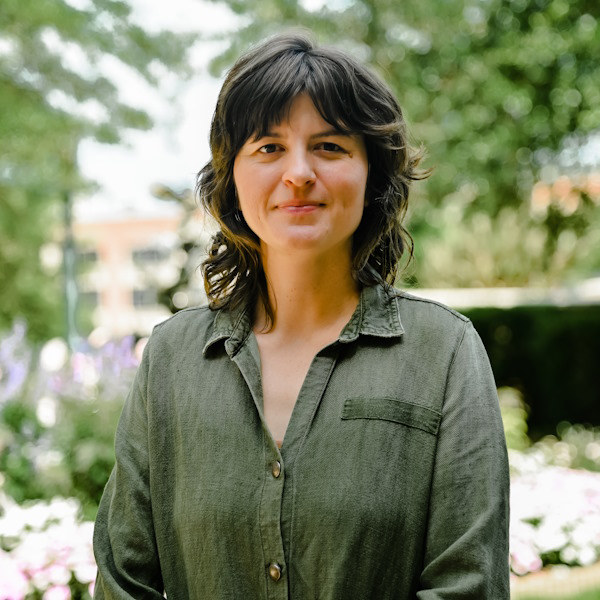July 8, 2024 | Erin Bluvas, bluvase@sc.edu
Andrea Jilling, who goes by Andi (pronounced “on-dee”), loved plants and gardening while growing up in Hungary and the U.S. She was studying botany and environmental science at McGill University in Montréal, Quebec when she discovered her passion for soil science.
“A mycology course ended up as my gateway to the field,” Jilling says. “I was fascinated by the diversity of fungi and their ability to thrive within a decaying log and pop up as a brightly-colored mushroom.”
She continued exploring ecosystems – both above and below ground – throughout her undergraduate program. After graduating, Jilling spent time as the assistant head manager for Lufa Farms, which is known for their sustainable roof-top gardens in Montréal, Quebec.
In 2013, she returned to academia by enrolling in the Ph.D. in Earth and Environmental Science program at the University of New Hampshire. During this time, Jilling developed research interests in the biological, physical and chemical functioning of soil systems.
“I am interested in how nutrients move through soil systems and the role this plays in climate regulation and agricultural productivity,” says Jilling, who continued her research as an assistant professor of soil chemistry at Oklahoma State University before joining the Department of Environmental Health Sciences last fall. “Our research at the Environmental Soil Science Lab centers largely around soil organic matter, especially the organic matter associated with clay minerals, as this is a major reservoir for carbon and nitrogen.”
Jilling is particularly interested in how climate change may accelerate the cycling of nutrients and pollutants released from clay minerals. This acceleration may pose increasing threats to air and water quality – impacting both human and environmental health.
“I’m motivated by basic questions such as how soil organic matter forms and when, where and why it becomes available to a plant or microbe,” she says. “At a more practical level, our research also considers how we can manage soils to support healthy, climate-resilient and productive ecosystems.”
“There are numerous environmental threats affecting soil health such as Poly Alkyl Substances and climate change, just to name a few,” says Geoff Scott, chair for the Department of Environmental Health Sciences. “We now realize that maintaining the health and well-being of the microbial community of the soil or soil microbiome is important in keeping terrestrial ecosystems healthy, particularly our agricultural systems must be healthy in order to produce food that is nutritious and safe for our consumption. Dr. Jilling brings her outstanding expertise in this area of environmental research, which allows her to utilize soil mesocosms and other tools to assess the effects of different stressors on soil health and well-being. This knowledge is critical to understanding and managing the threats posed by these numerous environmental stressors of the 21st century.”
Jilling is thrilled to be a part of the interdisciplinary and supportive environment offered by her department and the university.
“It’s an exciting time to join the Arnold School of Public Health as there is increasing interest in understanding soils as a reservoir and source of contaminants, pathogens and nutrients,” she says. “I most look forward to building connections with colleagues and students.”

